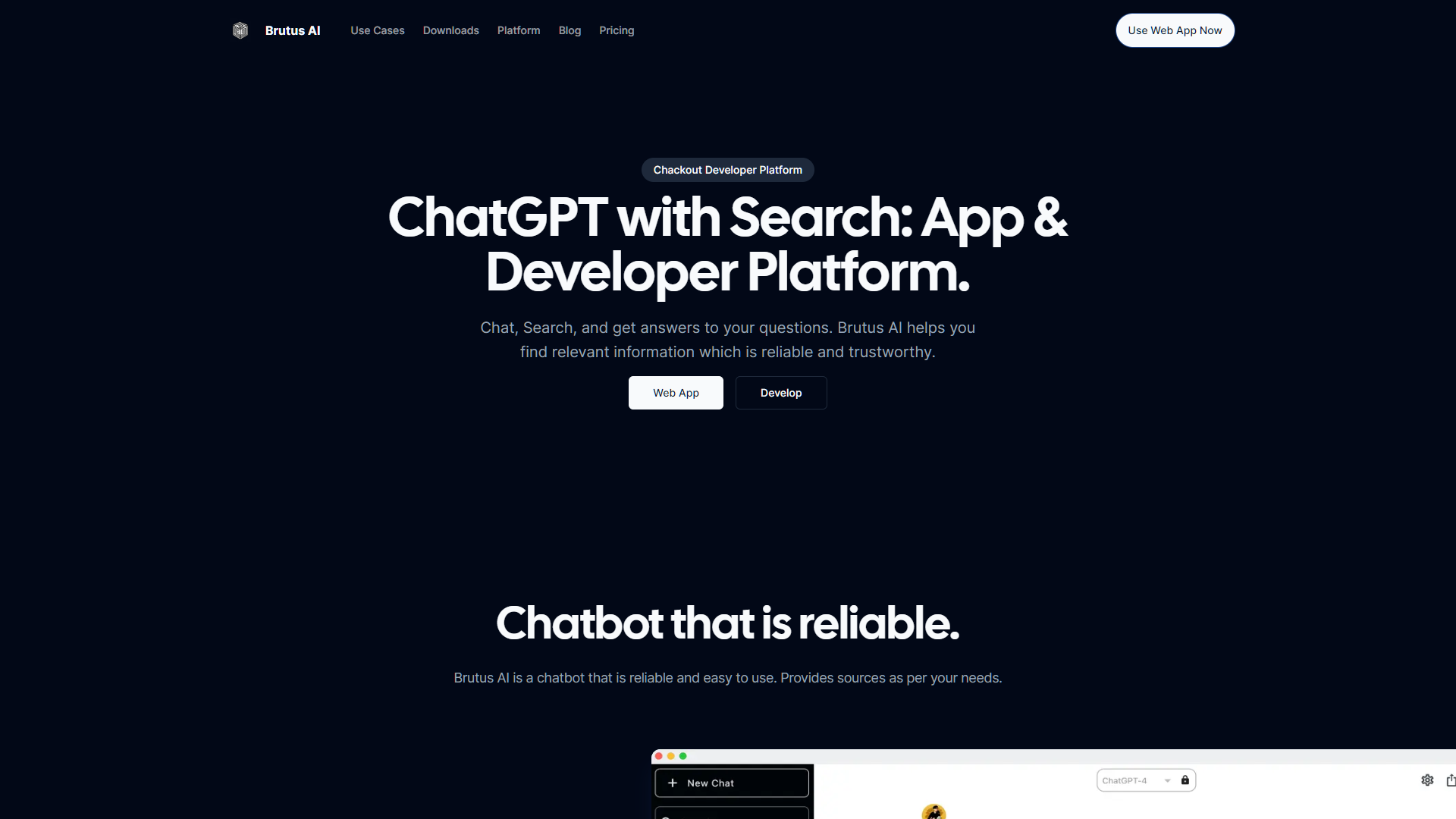Overview
BrutusAI is a cutting-edge AI chatbot and search assistant that leverages OpenAI's GPT-4 technology to deliver a blend of conversational interaction and advanced search capabilities. Designed to perform like a human conversational partner, BrutusAI excels in providing real-time information from the internet and scholarly databases, making it an invaluable tool for research, content creation, and enhancing personal productivity.
This versatile tool supports multiple languages, enabling users worldwide to benefit from its wide range of functionalities, including generating emails, composing documents, and facilitating creative brainstorming sessions. One of BrutusAI's standout features is its memory function, which allows it to recall previous interactions, thereby offering personalized assistance over time. This feature is particularly beneficial for ongoing projects and educational purposes, where continuity in interaction can significantly enhance learning and project management.
BrutusAI is committed to maintaining high standards of privacy and security, with all communications encrypted to protect user confidentiality. Its user-friendly interface and regular updates make it easy to use while ensuring it remains at the technological forefront. Ideal for students, researchers, and professionals, BrutusAI combines the best of AI-driven assistance and information retrieval in one efficient platform.
Key features
- Human-like conversations: Leveraging OpenAI's GPT-4, BrutusAI offers engaging, natural dialogues, making interactions smooth and intuitive.
- Real-time information retrieval: Seamlessly fetches up-to-date data from the web and academic sources, enhancing research and decision-making processes.
- Multilingual support: Accommodates various languages, enabling users worldwide to interact and receive assistance in their native tongue.
- Personalized memory function: Remembers previous interactions to provide continuity in projects and personalized user experiences.
- Privacy and security: Ensures all user data is encrypted, maintaining confidentiality and protecting sensitive information.
- Intuitive user interface: Designed for ease of use, facilitating efficient navigation and operation for all user proficiency levels.
 Pros
Pros
- Scalable architecture: Adapts to varying user demands, ensuring consistent performance during high traffic and complex query handling.
- Continuous learning: Updates its knowledge base regularly, improving accuracy and expanding its range of topics for better user assistance.
- Advanced analytics: Provides insights into user interactions, helping businesses understand customer behavior and refine their strategies.
- Integration capabilities: Easily connects with existing systems and software, allowing for streamlined workflows and enhanced productivity.
- Cost-effective solution: Reduces the need for multiple tools and personnel, offering a single, efficient platform for various tasks.
 Cons
Cons
- High dependency on connectivity: Requires constant internet access to utilize real-time information retrieval and cloud-based processing capabilities.
- Limited offline functionality: Without internet, features like personalized memory and multilingual support are not accessible, reducing usability in remote areas.
- Potential data biases: Despite advanced algorithms, the AI may inadvertently develop biases based on the data it processes from the web and academic sources.
- Complex error resolution: When errors occur, especially in multilingual or personalized contexts, they can be challenging and time-consuming to diagnose and resolve.
- Resource intensive: High computational power is necessary for maintaining human-like conversations and real-time data retrieval, which might strain older systems.














